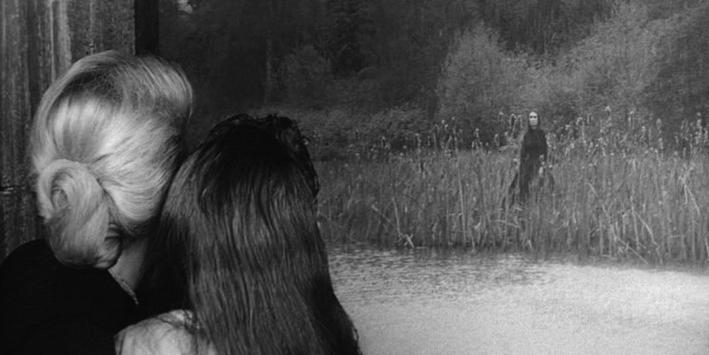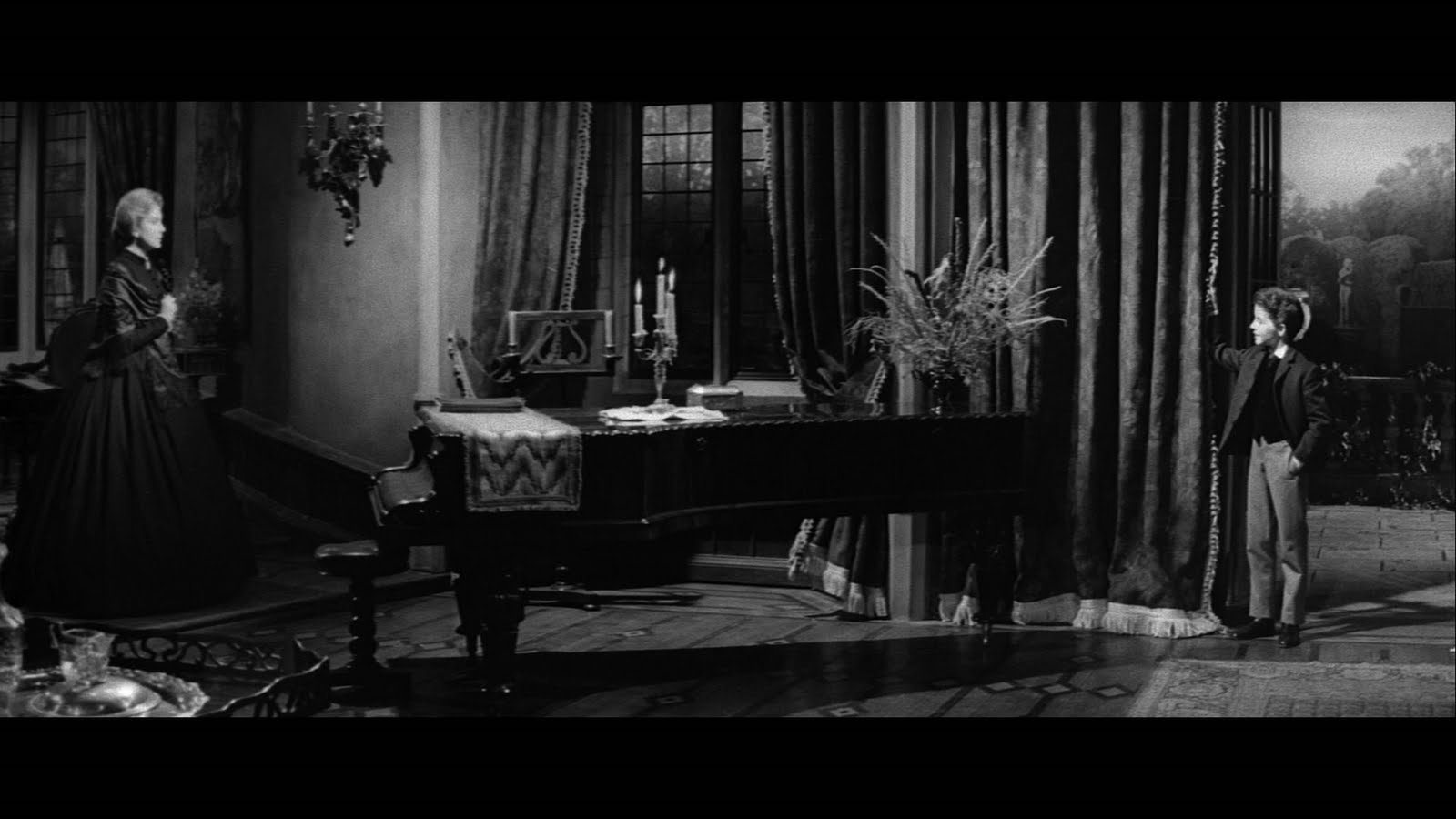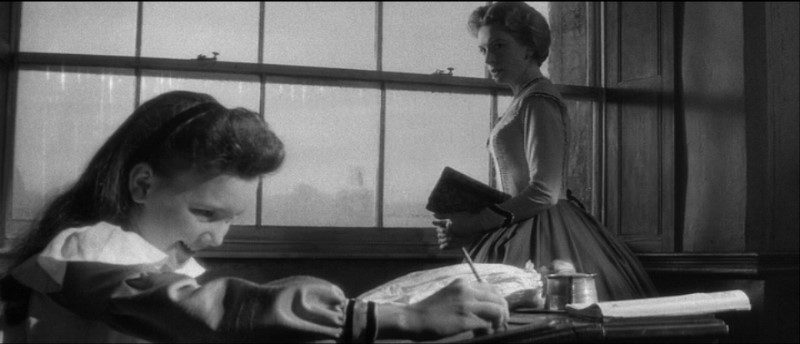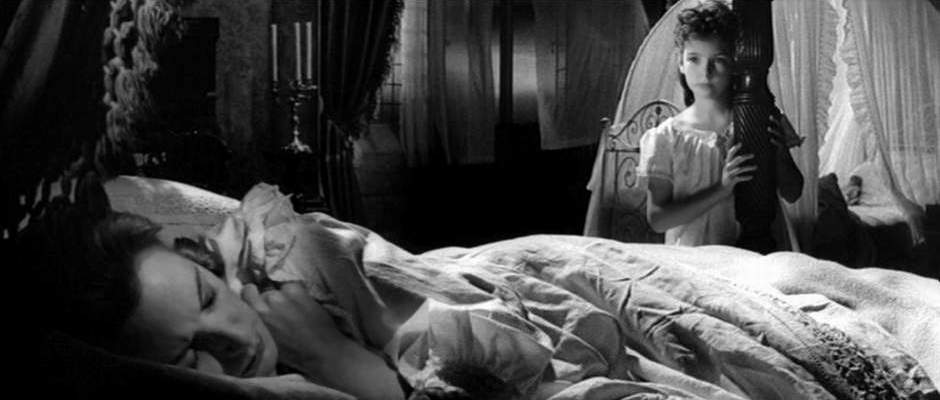The Innocents
 Friday, April 13, 2012 at 05:49PM
Friday, April 13, 2012 at 05:49PM  This 1961 adaptation of Henry James's "The Turn of the Screw" is not only a classic haunted house movie, one that still provides the delectable fun of feeling tingling up your spine. It's also a master class in how to bring the printed word to the screen. This is not simply a matter of sticking the plot up there. It means translating the book completely into cinema. Camera movement, shot distance, angle, cutting, performance, sound, palette, etc., etc.--all ringing changes on the book's theme, mood, psychology.
This 1961 adaptation of Henry James's "The Turn of the Screw" is not only a classic haunted house movie, one that still provides the delectable fun of feeling tingling up your spine. It's also a master class in how to bring the printed word to the screen. This is not simply a matter of sticking the plot up there. It means translating the book completely into cinema. Camera movement, shot distance, angle, cutting, performance, sound, palette, etc., etc.--all ringing changes on the book's theme, mood, psychology.
The genius of "The Turn of the Screw", of course, was that you could read it in two different ways (at least). Was that house really haunted by the children's severe, perhaps perverse former caretakers, Peter Quint and Miss Jessel, hell-bent on taking the children's hands from beyond the veil and reuniting their little group in death? Or were you reading the memoir of a sexually repressed young woman having a mental breakdrown? (She describes Quint, who haunts her, as "handsome and obscene"). Or does the truth lie somewhere in between? The book is not scary, exactly: it's more that its farrago of desire troubles you on a kind of primal, unconscious level.
The great achievement of the filmmakers was somehow to preserve the book's sense of ambiguity. That's a far trickier proposition in film because it's a much less ambiguous, much more direct medium. And while the persona of the narrator is stronger in the book than the film (as it nearly always is), Deborah Kerr is so right for the role of the governess that you believe she is the woman whose internal life we experienced, that here is the woman who composed the beautifully written sentences in which she sets down her story in the book (a nod here to the screenplay, co-penned by Truman Capote).

Freddie Francis's deep-focus cinematography lets you peer deeply into the recesses of that unhappy mansion, down dark halls ending in softly glowing windows. Even the natual light in this film looks pale and grey. There's bottomless darkness in the spaces of director Jack Clayton's widescreen compositions for unseemly secrets. That tension of light versus shadow: it drives the governess's disorientation. Why is the ghost of Miss Jessel somehow so much more unsettling when it appears in broad daylight than it would be in the dark?
And the sound: the creak of a door, the governess' frightened breathing in her ears. The silences of the vast house deafen, as well. Most unforgettably, there is that chiming music box, to which the little girl will later add those eerie sing-song lyrics, which sound to us, and to the chilled governess, like a siren call from beyond.
 The performances by the children (Martin Stephens and Isla Cameron) are remarkable turns of poise as well, tapping into what's mysterious and unknowable in all children. They teeter on that angel/devil fulcrum, without ever letting the balance finally rest anywhere. The governess views them askance. She's as alarmed by the idea they might be corrupt as she is that they're in mortal danger. Just who is terrifying whom, here?
The performances by the children (Martin Stephens and Isla Cameron) are remarkable turns of poise as well, tapping into what's mysterious and unknowable in all children. They teeter on that angel/devil fulcrum, without ever letting the balance finally rest anywhere. The governess views them askance. She's as alarmed by the idea they might be corrupt as she is that they're in mortal danger. Just who is terrifying whom, here?
There are whispery intimations of sexual abuse, never at a conscious level, and the obscenity of the idea that the children might have a bond with their late abusers. Why is it that the sound of children laughing should make the governess' blood run cold? It is the sound of her deepest fear, or her most fevered fantasy: the corruption of innocents.



Reader Comments